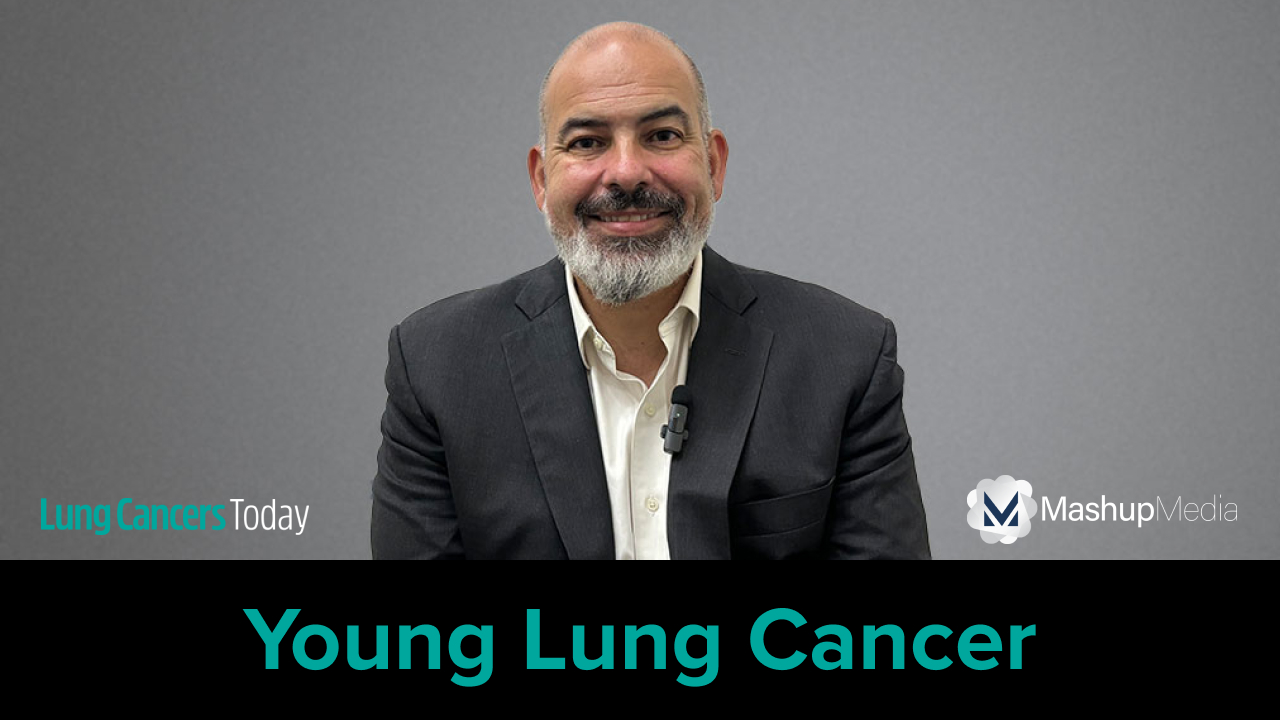‘Extraordinary’ Results in SCLC: Dr. Reck Discusses 5-Year OS Data From IMpower133, IMbrella A
By Martin Reck, MD, PhD, Cecilia Brown - Last Updated: September 4, 2024Martin Reck, MD, PhD, of the LungenClinic Grosshansdorf, discusses his recent publication in Lung Cancer on 5-year survival in patients with extensive-stage small cell lung cancer (SCLC) treated with atezolizumab in the phase 3 IMpower133 study and the phase 3 IMbrella A extension study.
“Small cell lung cancer, in particular metastatic small cell lung cancer, is a very difficult disease. For decades, we haven’t made any progress in the treatment of these patients,” Dr. Reck said. “We have seen a shift of the paradigm with the introduction of checkpoint inhibitors in combination with chemotherapy and the IMpower133 trial has been one of the first trials supporting this new standard of care that we do have for our patients with metastatic small cell lung cancer.”
In the IMpower133 trial, researchers randomized patients with metastatic SCLC to receive first-line atezolizumab or placebo plus carboplatin/etoposide in extensive-stage SCLC, Dr. Reck explained.
“The primary endpoint of the trial was overall survival, and we have seen a significant improvement in overall survival and progression free survival in favor of the combination of chemotherapy with atezolizumab, so this is the new standard of care which we can offer to our patients,” he said.
However, Dr. Reck noted that the “big question in small cell lung cancer is the question about the durable responses.”
“We do see fast relapse in the majority of patients, and we are really aiming for getting durable control of the disease by our systemic therapy,” he explained. “In IMpower133, there was the opportunity after the official follow-up to roll over patients to an observational trial, which was the IMbrella trial.”
Patients enrolled in IMpower133 could roll over to IMbrella A to receive atezolizumab 1,200 mg intravenously every 3 weeks if they continued to receive atezolizumab at IMpower133 closure or were in survival follow-up after atezolizumab discontinuation. Among the 26 patients who were eligible to roll over from IMpower133, 18 rolled over to IMbrella A.
In patients receiving atezolizumab plus carboplatin/etoposide, the 3-year overall survival (OS) estimate was 16% with a median follow-up of 59.4 months. The 4- and 5-year OS rates were estimated at 13% and 12%, respectively.
“This is somewhat extraordinary because, in particular, in small cell lung cancer, we haven’t seen any 5-year overall survival before,” Dr. Reck said. “So, this is really good news for the patients, that at least in some of these patients, we are able to achieve a very durable response by the implementation of checkpoint inhibitors like atezolizumab in the systemic therapy.”
In terms of safety in IMbrella A, serious adverse events occurred in 3 patients (16.7 %), and 1 adverse event of special interest was reported, which was grade 2 hypothyroidism. Dr. Reck also highlighted other clinical implications of the IMbrella A trial data.
“The other important message coming out of this analysis is the message that out of the 80 patients who rolled over to the IMbrella A trial, still 11 patients were under treatment with atezolizumab at the time of this analysis,” he said. “We do see that indeed there is a portion of patients with a very long benefit from the combination of chemotherapy and immunotherapy.”
However, it will be essential to learn how to identify patients with long-term benefits from this combination, Dr. Reck said.
“This is the question of biomarkers. We also performed some genomic analysis on the tumor material. The problem is that the patient numbers are very, very small,” he said. “We only have some exploratory signals that potentially some genomic signatures are associated with a better outcome following the [onset] of chemotherapy, immunotherapy. But this is something that we really need to follow up with larger patient numbers in prospective trials.”
Dr. Reck reflected on the study results and what it means for patients, clinicians, and the field. “We have made a next step in the management of metastatic small cell lung cancer,” he concluded. “We do see an impact on overall survival by the addition of immunotherapy to chemotherapy, but now we also can say that we do see progress in the rate of long-term survival in patients with metastatic small cell lung cancer, and I think this is quite an encouraging message.”







 © 2025 Mashup Media, LLC, a Formedics Property. All Rights Reserved.
© 2025 Mashup Media, LLC, a Formedics Property. All Rights Reserved.